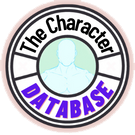Conceptual Manipulation
From The Character Database
Conceptual Manipulation is the ability to create, manipulate, and destroy abstract concepts. This power affects not the universe directly but the underlying concepts that shape reality. Depending on the scale, it can have a significant impact on reality.
Properties
The material world's properties exemplify their parts or natures from concepts. Altering a concept can directly change the corresponding part of the material world.
Types
- Type 1 (Platonic Concepts):
- Unrestrained by reality, aspatial, atemporal, and unchangeable.
- Pure and perfect in the ontological hierarchy, superior to the material world and its properties.
- Transcendent, shaping all of reality on any level, existing in the Intelligible world.
- Typically High 1-T+ in nature.
- Type 2 (Platonic Realism Concepts):
- Abstract, aspatial, and atemporal, governing properties of the material world.
- Affect properties both within and outside reality, such as "dimension-ness."
- Independent of the physical constituents they instantiate.
- Altering a specific property does not affect the universal concept itself.
- Fall under the category of 1-A concepts.
- Type 3 (Aristotelian Concepts):
- Abstract and govern reality to the extent that physical properties exist.
- Govern properties within reality, such as a specific number of dimensions.
- Divided into two natures:
- Reality Dependent: Altering or destroying every instance of a property alters or destroys the concept itself.
- Reality Independent: Altering or destroying instances in reality does not affect the concept, which exists externally.
- Type 4 (Lesser Realist Concept):
- Abstract but governed mind-dependently by sentient beings.
- Cease to exist without the existence of such beings.
Note
Manipulating Type 1 concepts themselves is impossible since they are pure, distinction-less essences. However, forms can be used to model the whole of reality and its extensions, including higher and lower perceptions.
